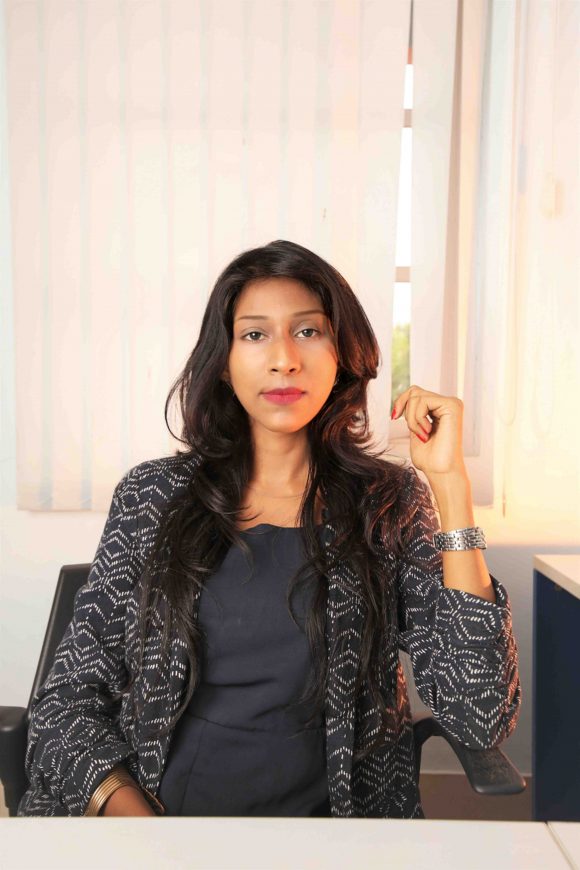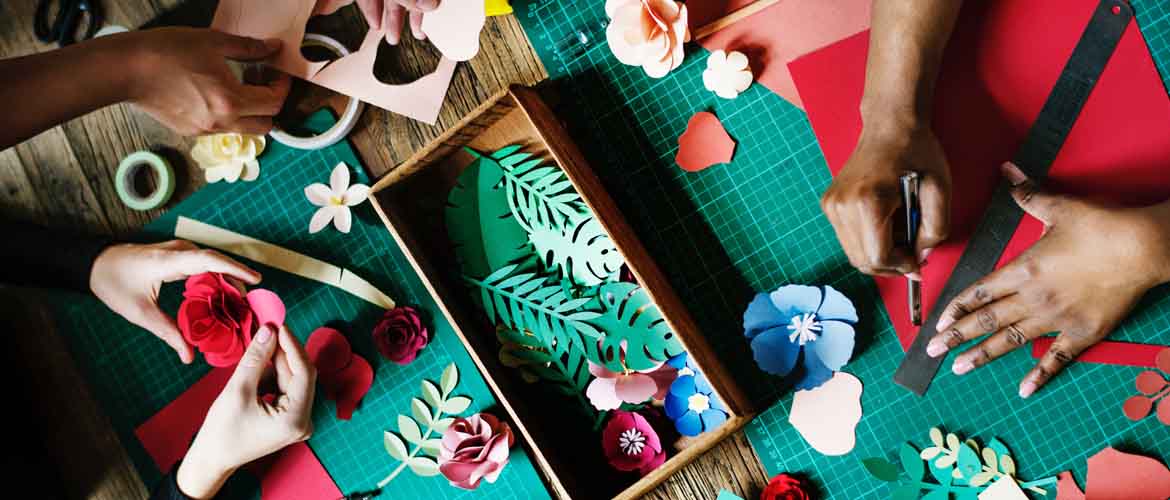Marketing creativity
Entrepreneur and environmentalist, Farheen Sayed, founded Brushflicks to help the creative community make a living in India. She also spoke about her entrepreneurial journey at the WIEF IdeaLab 2018 which was held in Goa.
In 2016, 26-year-old, Farheen Sayed, founded Brushflicks, a digital platform to help people with creative talent make a living, especially in India. She then founded another sub-product called Boxifier, in 2017, which is a clean tech-based product that converts acrylic plastic waste into unique packaging boxes with the Internet of Things (IoT) integrated technology. Based in India, Farheen wants to provide solutions for two major problems in India, which are unemployment in the creative sector and acrylic waste.

Farheen was a speaker at this year’s WIEF IdeaLab 2018 at the Goa Management Institute, India on 16-17 Oct 2018. She spoke about how she managed to weather the storm of her startup life and managed to come out even stronger.
As a child, Farheen was always interested in art, painting and photography. ‘It’s a kind of flow state or mental focus that I find super exciting and exhilarating. I haven’t found anything else like it. I believe to paint is to show a bit of your soul. Where words fail, colours and strokes convey. A deep-seated subconscious comes to life. It’s a way of connecting with your inner self. And more often than not, we remain surprised by what we see,’ she says.
Farheen feels that technology can play a role in enhancing the lives of people in the creative field through the internet. ‘I live art. I have spent most of my life working with art and communicating with artists. In my conversations with artists I realised the need for this platform,’ she says.
Learning through the hurdles
She started her entrepreneurial journey immediately after completing her engineering degree from Goa’s Padre Conceicao College of Engineering. She had no corporate or work experience at all and hardly any money to start a business. So, to fund her art platform project, she decided to start Canvasmirage, a company to sell art prints. Though that business failed, it didn’t stop her from starting again, but this time she started selling mangoes instead. ‘I was the laughing stock in my circle. After all the satirical and sarcastic remarks, I finally raised funds for Brushflicks and launched it in November 2016,’ she recalls.
Brushflicks helps the creative industry in two ways. It encourages skill development and connects learners with experts in the field and connects creative people to the right industries and buyers. Being an environmentalist, she also wanted to do something creative with plastic waste and that worked well with Boxifier, which is now segregated into an entirely new company.
However, this doesn’t come without difficulties. Some of the hurdles she faces are approaching students, art curators, institutions, art agencies and other people in the creative sector to use her platform or to get their feedback to improve. Even collecting acrylic plastic waste from the vendors for recycling is a big challenge. Farheen thinks that this is because they are unaware of the use of technology to enhance their creativity and improve their livelihood. ‘Educational institutions and private agencies working in art and media sector will have a major role to play,’ she says.
Despite her obstacles, Farheen believes that her failures make her wiser and stronger. If she sets a goal, she gathers all her strength to make it happen and even after she has have achieved it, she stays persistent. What keeps Farheen persistent in the face of pain and disappointment, is to focus on the feeling of success. ‘Mentally, I put myself where I’m experiencing success in my mind. Through the use of my senses and my imagination, I actually put myself there,’ she says.
As a young entrepreneur
‘Funding is harder to get when you’re young for a number of reasons. You won’t have any personal savings to draw upon, your finances will be less stable and you won’t have a credit history to show prospective lenders,’ she says.
Another difficulty she notes is reputation. ‘When you’re young, you won’t have any kind of reputation to work with. People won’t know your name and you won’t be able to draw upon your connections in specific industries. You’ll be starting from scratch, which puts you at a disadvantage to your more seasoned counterparts,’ she adds.
The third is stereotyping, which unfortunately most investors and potential clients would have. ‘You’ll be seen as less wise and more prone to rookie mistakes and people will be less willing to give you a chance,’ she explains.
Creating change
Farheen believes that being an entrepreneur is about making a difference. ‘I see many people going about with the title entrepreneur, but they are not really in it to create change. They are in it to survive,’ she says. At Brushflicks, Farheen has a mission to make it the biggest hub for generating employment opportunities for the creative sector and waste management strategies. ‘One of the hardest parts of starting a new business is getting it off the ground, raising the funds, learning the ropes and finding those few customers. I’m willing to take up these challenges, learn as much as possible in the process and be more flexible to finally become a successful entrepreneur,’ she says.
This idea started during her engineering degree in 2013. A year later, she presented the idea at a startup challenge in the college which bagged the first place. Another challenge she got into was in 2016, which got her in the top 20 in Kaun Banega Udyogpati (KBU), a competition hosted by the Center for Incubation and Business Acceleration (CIBA). This boosted her confidence and after conducting a lot of surveys, she started to build her prototype.
Now, Farheen has reached to over 1,000 clients and over 1,400 artists benefitting bloggers, musicians, designers and photographers. ‘We work on a drop shipping model where we don’t hold any inventory, but act as aggregators connecting artists to buyers. As of now, we don’t charge any marketing fee or subscription fee, we work on marginal revenue,’ she says.
Last words
Farheen notes that her journey has taught her how to manage chaos. Her biggest lesson learnt was that things are not always put perfectly together. ‘Not everything is legally completed, people are not always paid on time and many processes don’t actually work. So, the ability to manage chaos and create something in that space is truly novel,’ she says.
Farheen sees that for a startup, everything is on the line at all times until you reach a certain level of funding. ‘Everyone is stressed about deadlines, we are constantly pushing the boundaries of what’s possible and achievable and work at breakneck speed,’ she says.
She advises others not to build all their technology by themselves. ‘Use open source frameworks and suppliers. Most of the value is usually to get people to use the technology, not the technology itself,’ she says. Farheen and her team have been actively involved in product development and in solving technical issues. She’s also willing to take up more responsibilities in the coming years and market this technology to other developing countries.
___________________
Photo by rawpixel on Unsplash





